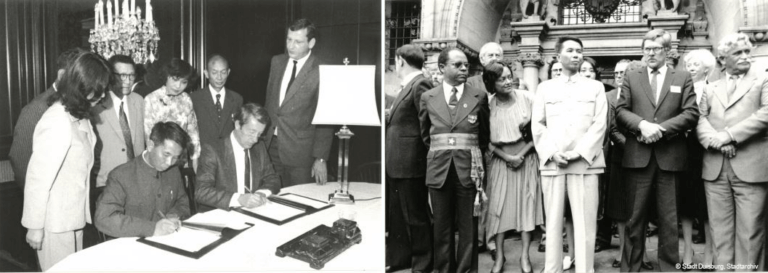The UN Habitat’s first Assembly (ever) took place over the past week in Nairobi, hosting more than 3’000 delegates from over 116 countries along with civil society representatives, business leaders and experts from all over the world. With progressing urbanization, the UN agency, as the main organization for human settlements and sustainable urban development, serves as forum and decision-making body to discuss viable solutions and approaches to „fuel green and sustainable growth, protect the environment, ensure equality for all, and keep the social fabric of the communities intact“ according to Joyce Msuya, acting executive director of the UN Environmental Programme. As the urban population is rising, with almost 70% of the world’s population expected to live in cities by 2050 according to the UN DESA’s 2018 Revision of World Urbanization Prospects Report, urban areas will increasingly face challenges such as poverty, social exclusion, unemployment and pollution which were addressed during the numerous roundtables, workshops and side events at the UN Habitat conference.
During the conference, Marco Kamiya, head of urban economy and finance branch of the UN-Habitat, confirmed the future cooperation with China’s e-commerce giant Alibaba Group Holding Ltd on the AI for City: The Initiative for Urban Innovation and Sustainable Communities Initiative, researching the use and implementation of articifical intelligence (AI) in urban spaces. Kamiya explained: “Once the use of artificial intelligence in urban planning has been consolidated in China, it then will be rolled out to the rest of the world”. The project also involves the China Academy of Urban Planning and Design as part of China’s Ministry of Housing and Urban-Rural Development and is expected to start by the end of the year. The ultimate goal is to utilize AI in a way to increase the quality of life in cities and enhance security while assisting cities in the development and implementation process.





